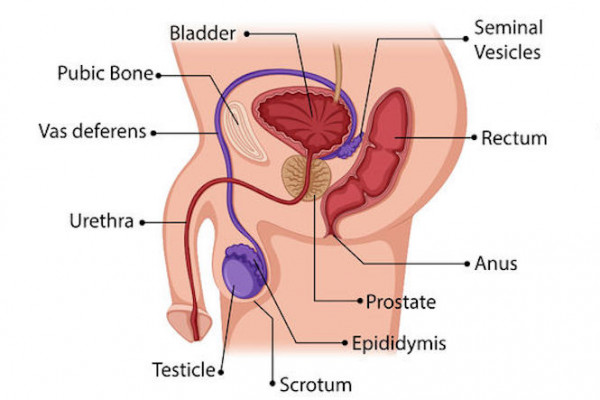- Epididymitis means inflammation of the epididymis (a tube that stores and carries sperm); orchitis is an inflammation of one or both testicles (where sperm is made).
- In men who are sexually active, epididymo-orchitis is usually due to a sexually transmitted infection (STI), eg, chlamydia or gonorrhoea.
- If you use a condom every time you have sex you're much less likely to get epididymo-orchitis.
- Sometimes epididymo-orchitis is due to a urinary tract infection (UTI) – this is more common in men over 35 years of age.
- See your doctor straight away if you think you have epididymo-orchitis. Antibiotics usually clear it without complication.
| Sudden severe pain in your testicle or scrotum can be due to a twisted testicle. This is serious and you need to see a doctor straight away. |
|---|
The image below shows the location of the epididymis and testicle inside the scrotum.

Image credit: 123rf






